Pâte Brisée (Pie Crust)
/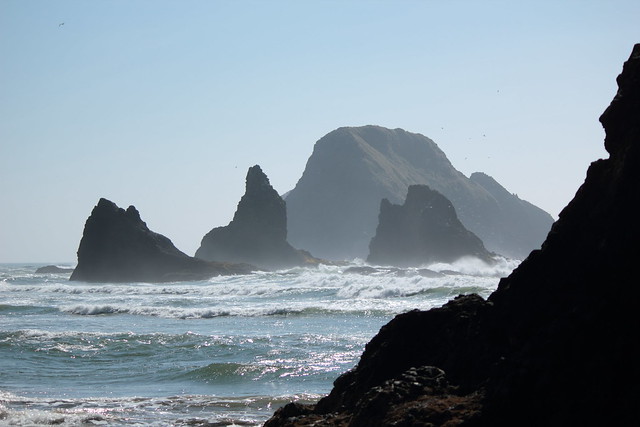
The ocean holds a great sense of mystery for me. The crashing of the waves against the rocks, the salty sea air—I am drawn to it in a way I don't yet understand. I sense secrets hidden in the movement of the water and the changing of the tides. If I try to seek answers in its cryptic waters, it pretends not to hear my questions.
I grew up only a couple hour's drive from the geological center of North America. Entirely landlocked, the nearest lake was my ocean. The beaches were rocky and the sharp sand would sting the bottoms of my feet. My sandcastles were made of clay and mud. The water was as murky as could be and left you with a lingering scent long after leaving the water. Though I saw it as my substitute for the sea, I did grow to appreciate it for what it was.
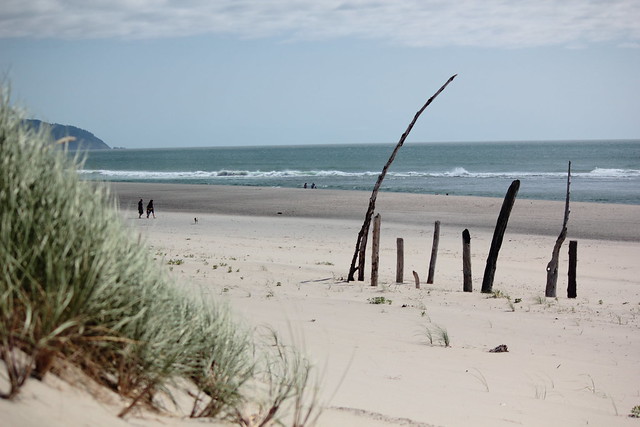
Nevertheless, I longed to see the ocean. My friends would tell me passing stories of trips to the beach and I would always pry them for more information. What did the waves feel like? Was the water actually salty?
When it was finally my turn to pay a visit, I remember being struck with a great sense of awe. I never anticipated the roar of the ocean or the strength of the waves. When I was hit with my first mouthful of water, I nearly gagged on the intensity of the saline. There was a vastness I was attracted to; it made me feel so small. I was sad to leave.
Since then, I've visited the sea only a few times, but never long enough to sense the changing of the tides.
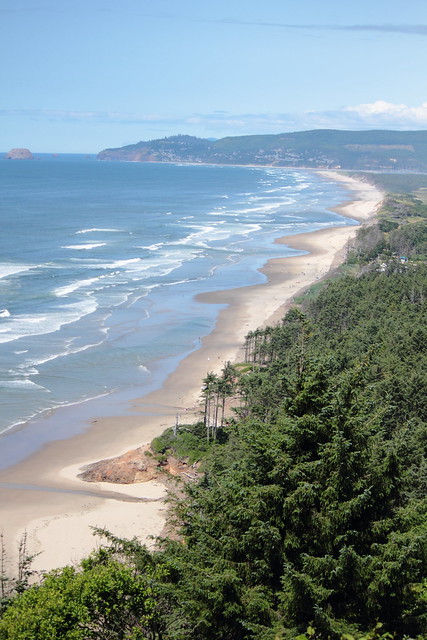
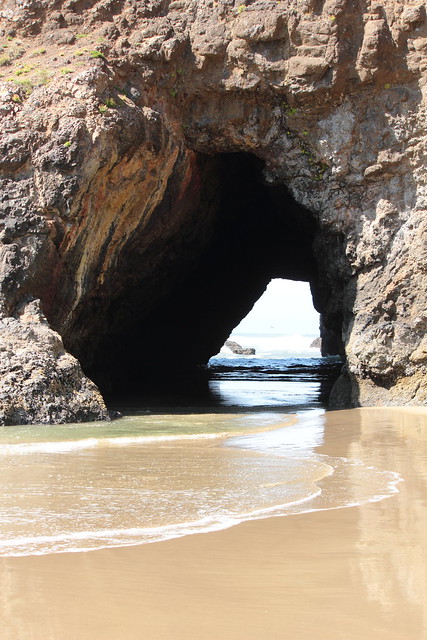
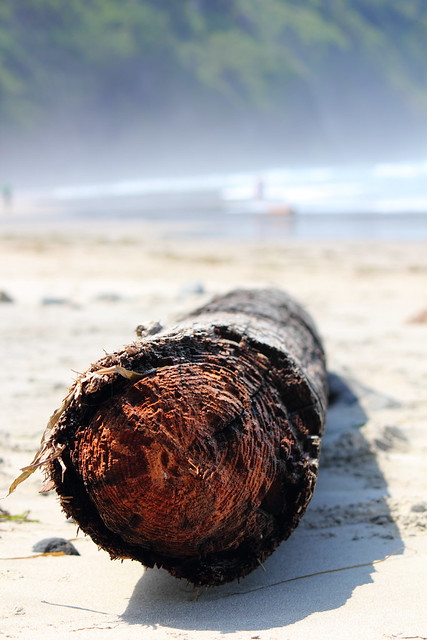
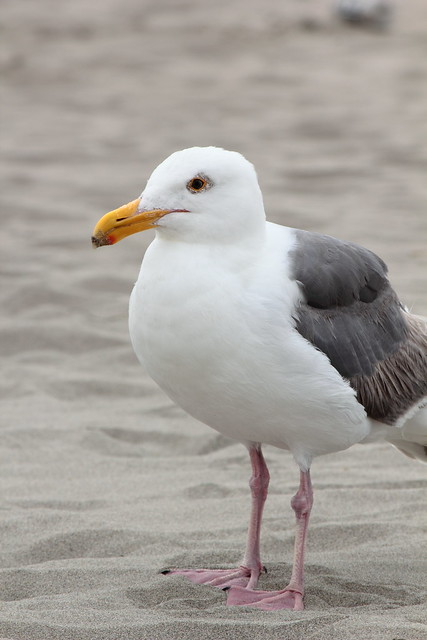
This past week, a few friends and I rented a charming beach house on a secluded stretch of the Oregon coast. I was hoping for a long, relaxing vacation on the water and my wish was granted. The house was settled on a cliff, a short walk down to a private beach. I could see the ocean from my bed; it was the first thing I would lay eyes on when I awoke in the mornings.
Every day of the week was spent down at the beach, whether playing a game of Frisbee or simply wading into the water. The water was astonishingly cold, burning the skin on my legs before my feet would go numb. I often licked my lips to taste the salt lingering from the spray of the sea. More than once I napped in the sand, lulled to sleep by the repetition of the waves.
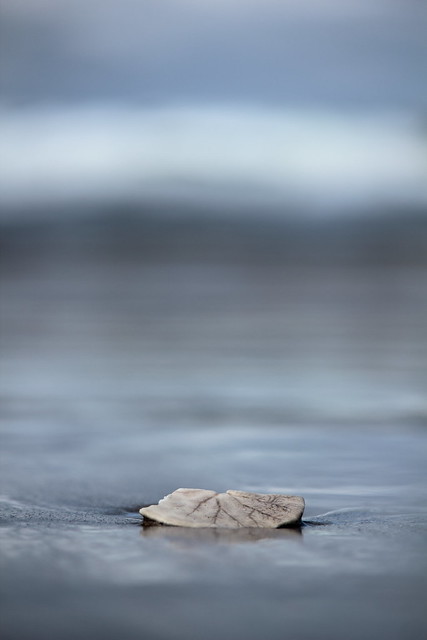
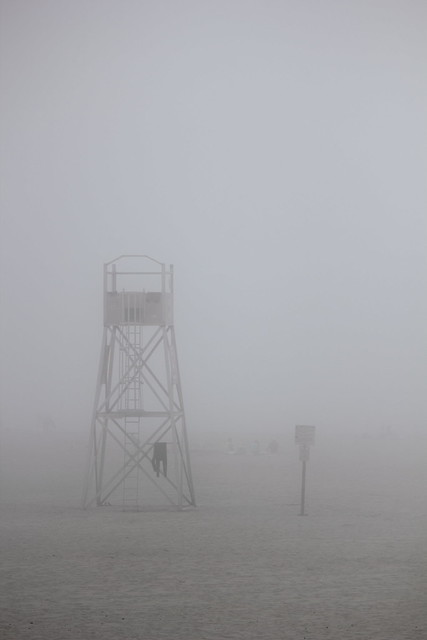
Though the Oregon winds were chilly and brisk, the air felt fresh and clean. Great fogs would descend on the shoreline, obscuring the waters and land from view. The beach became isolated and I imagined myself on a different world. I could hear the powerful waters, but I could scarcely see more than a few feet out in the ocean. The sea is still foreign to me. I still haven't solved its mysteries.
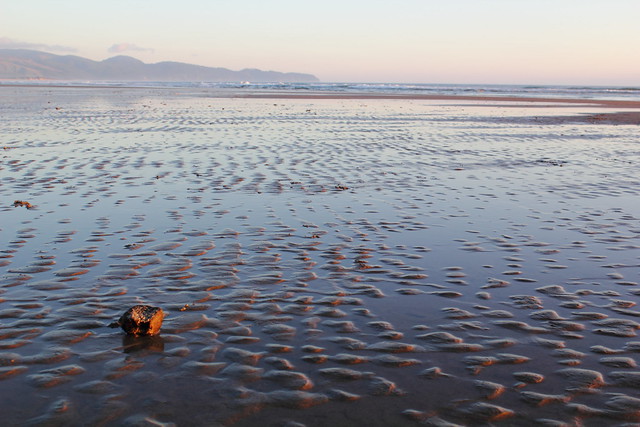
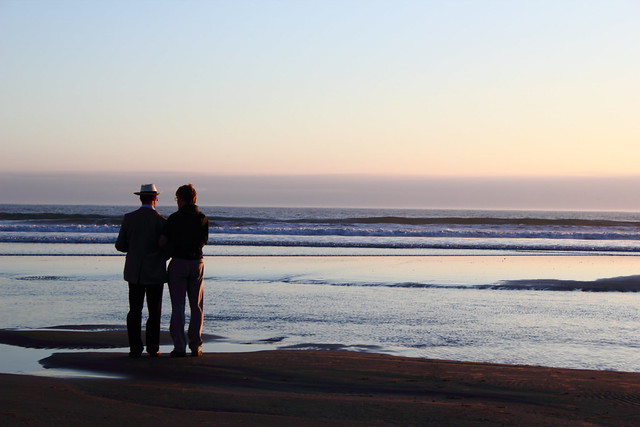
Even now, as I am writing to you, I'm finding sand buried deep beneath my fingernails and hiding quietly behind my ears. Though the sand will wash out from between my toes, I can still recall the waves licking my feet and the chill of the water rushing up to meet my knees. The ocean settled deep within my body. It became a part of me.
If I close my eyes and listen fiercely, I swear I can hear the roar of the sea.
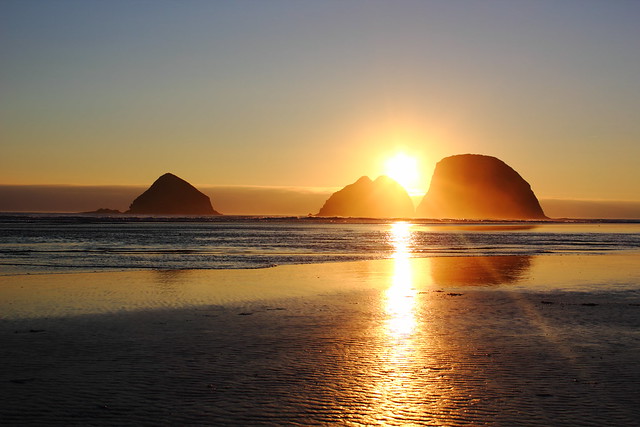
Unlike the ocean, this Pâte Brisée holds no secrets. Adapted from the one and only Martha Stewart, this pie crust is my idea of buttery, flaky perfection. The recipe is simple to follow and even easier to roll out. I've used this crust recipe many times without a hitch. Unlike other dough recipes, I've never had a problem with the dough shrinking when baking due to overworked dough (a huge pet peeve of mine!). I've outlined two methods for making the pie dough below—by hand and with a food processor—to make this recipe accessible to everyone and all kitchens (yes, even you!).
This dough recipe is perfect for making these Blueberry Hand Pies and a fantastic cherry pie recipe I'll be sharing with you soon!








